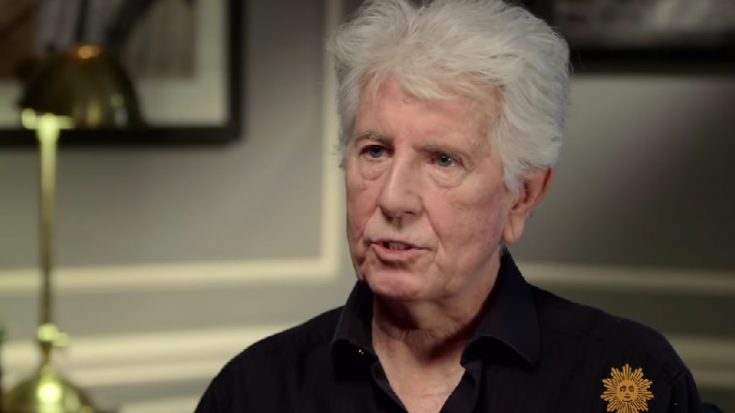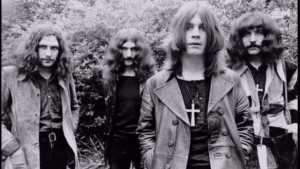How A Song Made Graham Nash Quit The Hollies

via CBS Sunday Morning / YouTube
Every band faces the challenge of balancing individual creativity with collaborative efforts, and for Graham Nash, the allure of creative freedom ultimately led him down a new path. Known for his time with The Hollies and later a pivotal member of Crosby, Stills, and Nash, Nash’s departure from The Hollies was driven by his desire to explore new musical horizons. The catalyst for this change was the song “Marrakesh Express,” which not only symbolized Nash’s artistic evolution but also marked a turning point in his career.
Nash’s Musical Background
Before achieving fame as a folk-rock icon, Graham Nash had established himself in the vibrant British rock scene. Through encounters with future legends like The Beatles, particularly John Lennon, Nash gained insights into the art of songwriting and collaboration. His experiences on the club circuit laid the foundation for his musical journey, setting the stage for the bold choices he would later make in his career.
The Evolution of Nash’s Musical Style
As the late 1960s unfolded, Nash’s creative spirit yearned for new avenues of expression beyond The Hollies. Joining forces with David Crosby and Stephen Stills felt like a natural progression, offering Nash the opportunity to explore diverse musical landscapes. The trio’s collaborative approach to songwriting and experimentation with unconventional tunings and harmonies provided a fertile ground for artistic growth. With each record serving as a canvas for musical exploration, Nash found the artistic freedom he had been seeking.
View this post on Instagram
The Influence of “Marrakesh Express”
“Marrakesh Express” served as a pivotal moment in Nash’s career, propelling him towards a new artistic direction. David Crosby reflected on the impact of the song, noting that its folk-infused sound represented a departure from The Hollies’ established style. The track showcased Nash’s songwriting prowess, featuring evocative lyrics and lush acoustic arrangements that set it apart from conventional pop sensibilities. Crosby acknowledged the significance of “Marrakesh Express,” suggesting that had The Hollies recognized Nash’s songwriting talent earlier, the band’s trajectory might have been different.
Nash’s Artistic Rebirth with CSN
With the success of their debut album, Crosby, Stills, and Nash solidified their status as a groundbreaking supergroup. Hits like “Suite Judy Blue Eyes” resonated with audiences, showcasing the group’s harmonious blend of folk and rock influences. Embracing his role as a folk songwriter, Nash continued to craft introspective and melodic compositions, evident in tracks like “Teach Your Children.” Freed from the constraints of his past endeavors, Nash found a renewed sense of creativity and expression within the dynamic trio.
View this post on Instagram
Personal Growth and Musical Exploration
After a period of dedicated commitment to The Hollies, Nash’s transition to Crosby, Stills, and Nash marked a significant shift in his creative journey. Stepping into the realm of folk rock allowed Nash to delve into his sensitive side and express his innermost thoughts through his music. Though the studio environment remained tumultuous at times, Nash found solace in the opportunity to share his artistic vision more freely than before.
Graham Nash’s decision to leave The Hollies in pursuit of greater artistic freedom was a transformative moment in his career. “Marrakesh Express” not only symbolized Nash’s departure but also heralded a new chapter of creativity and collaboration. Through his partnership with Crosby and Stills, Nash embraced his identity as a folk-rock pioneer, leaving an indelible mark on the music industry. The journey from The Hollies to Crosby, Stills, and Nash encapsulates Nash’s unwavering commitment to artistic expression and musical exploration, ultimately solidifying his legacy as a revered figure in the realm of folk and rock music.












